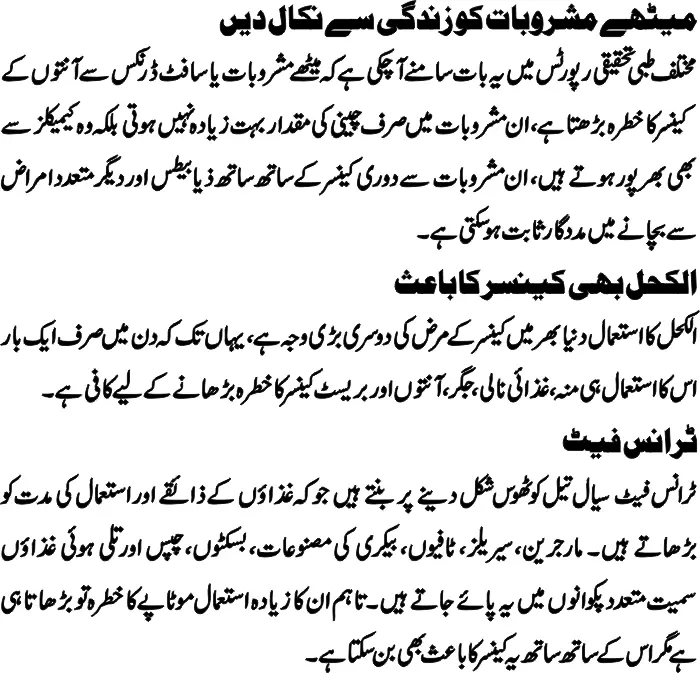Cancer, a complex group of diseases characterized by the uncontrolled growth of abnormal cells, continues to be a significant global health concern. As rates of cancer diagnosis rise, prevention becomes a critical focus for maintaining overall well-being. In this article, we will explore simple and practical cancer prevention tips that can contribute to a safer and healthier future.
1. Adopt a Healthy Diet
A well-balanced and nutritious diet is fundamental for preventing cancer. Include a variety of fruits, vegetables, whole grains, and lean proteins in your meals. Limit the consumption of processed foods, sugary snacks, and red or processed meats, as they have been associated with an increased risk of certain cancers.
2. Stay Physically Active
Regular physical activity is linked to a lower risk of several types of cancer. Aim for at least 150 minutes of moderate-intensity exercise or 75 minutes of vigorous-intensity exercise per week. Activities like walking, jogging, swimming, or cycling contribute to overall health and may help reduce cancer risk.
3. Avoid Tobacco Products
Tobacco use is a leading cause of various cancers, including lung, mouth, throat, pancreas, and bladder cancers. Avoiding tobacco products, including cigarettes and smokeless tobacco, significantly lowers the risk of cancer. If you smoke, seek support to quit, as it is one of the most impactful steps you can take for your health.
4. Limit Alcohol Consumption



Excessive alcohol consumption is associated with an increased risk of certain cancers, such as breast, liver, and esophageal cancers. Limit alcohol intake to moderate levels – up to one drink per day for women and up to two drinks per day for men.
5. Protect Your Skin from the Sun
Skin cancer is one of the most preventable types of cancer. Protect your skin by wearing sunscreen with a high SPF, seeking shade, and wearing protective clothing, including hats and sunglasses. Avoid prolonged exposure to the sun, especially during peak hours.
6. Get Vaccinated
Certain infections, such as human papillomavirus (HPV) and hepatitis B, are linked to an increased risk of specific cancers. Vaccination against these infections can significantly reduce cancer risk. Consult with healthcare professionals to ensure you are up-to-date on recommended vaccinations.
7. Practice Safe Sex
Engaging in safe sex practices can help prevent infections associated with an elevated risk of cancer, such as HPV and HIV. Use condoms consistently and consider regular screenings for sexually transmitted infections.
8. Prioritize Regular Screenings and Check-ups
Early detection is crucial for successful cancer treatment. Participate in regular screenings and check-ups based on your age, gender, and family history. Mammograms, Pap smears, colonoscopies, and other screenings are vital for detecting cancer in its early stages.
9. Maintain a Healthy Weight
Obesity is a risk factor for several types of cancer, including breast, colorectal, and pancreatic cancers. Adopting a healthy lifestyle that includes a balanced diet and regular exercise can help maintain a healthy weight and reduce cancer risk.
10. Manage Stress
Chronic stress has been linked to various health issues, including an increased risk of cancer. Practice stress-management techniques such as meditation, deep breathing, yoga, or engaging in hobbies. Prioritizing mental health contributes to overall well-being and may help lower cancer risk.
Conclusion: Empower Yourself with Prevention
While not all cancers are preventable, adopting a proactive approach to your health can significantly reduce the risk of developing certain types of cancer. By incorporating these simple and practical cancer prevention tips into your lifestyle, you empower yourself with the knowledge and habits for a safer and healthier future. Remember, small changes can lead to significant impacts on your overall well-being.



